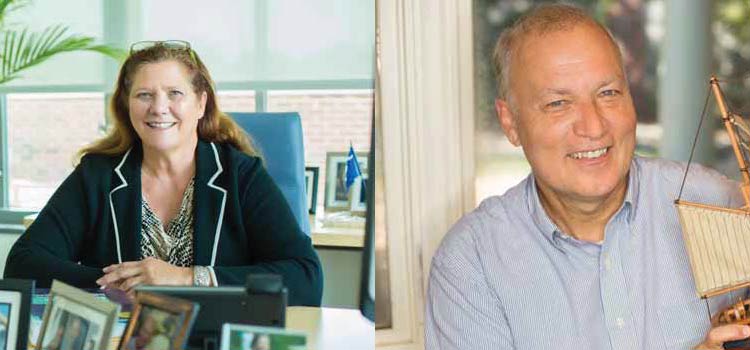
Mount Pleasant voters will go to the polls Nov. 7 to determine who will serve as the town’s next mayor. At press time, the only two candidates for the job were Linda Page, the incumbent, and Town Councilman Will Haynie. Mount Pleasant Magazine asked both of them 11 key questions about the present and future of one of the fastest-growing municipalities in the country. Here are their answers:
What do you think is the most important issue facing the town of Mount Pleasant?
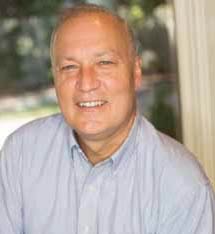 Will Haynie: The most important issue facing the town of Mount Pleasant is the effect our rapid and seemingly rampant growth is having on our infrastructure, which is fueling our citizens’ perception of who is deciding what kind of town we will be, which leads to loss of quality of life. I feel that we have emphasized growth to the point of exhaustion, and Mount Pleasant is ready for a mayor who will transition the town into the next phase: a sustainable mode.
Will Haynie: The most important issue facing the town of Mount Pleasant is the effect our rapid and seemingly rampant growth is having on our infrastructure, which is fueling our citizens’ perception of who is deciding what kind of town we will be, which leads to loss of quality of life. I feel that we have emphasized growth to the point of exhaustion, and Mount Pleasant is ready for a mayor who will transition the town into the next phase: a sustainable mode.
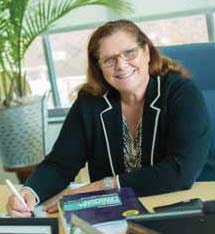 Linda Page: We need to find balance between quality of life and growth by overseeing reasonable and acceptable development. With that said, our major transportation projects need to begin sooner than later, including the widening of Highway 41, completion of Billy Swails Boulevard and re-alignment of Long Point Road. We also need to begin the 10-year revision and implementation of the new Comprehensive Plan, as well as the Long Range Transportation Plan, as soon as possible.
Linda Page: We need to find balance between quality of life and growth by overseeing reasonable and acceptable development. With that said, our major transportation projects need to begin sooner than later, including the widening of Highway 41, completion of Billy Swails Boulevard and re-alignment of Long Point Road. We also need to begin the 10-year revision and implementation of the new Comprehensive Plan, as well as the Long Range Transportation Plan, as soon as possible.
What are Mount Pleasant’s greatest attributes?
Linda Page: Fantastic location, award-winning schools, low crime, low taxes, excellent public services and natural beauty. We have great health care options, great restaurants, modern accommodations and boundless shopping opportunities, including many locally owned businesses.
Will Haynie: Mount Pleasant’s greatest attributes are its natural beauty, our quality of life (though threatened) and our involved and engaged citizens.
What are Mount Pleasant’s biggest problems?
Will Haynie: Since I announced my candidacy for mayor in October of 2016, I have been all over town listening to the voters. I constantly hear one problem almost to the exclusion of all others: Mount Pleasant is growing too fast, our infrastructure is strained and we are losing our quality of life. It has gotten to the point where almost daily a resident tells me this is not the same town they moved to, and they are planning to move away. To me, that is a terribly sad failure of leadership. I decided to run for Council and now mayor to try to change that trend. A regional study presented to us at a Council Economic Development Committee found that traffic congestion is the number one complaint registered by the vast majority of residents in the region – and our traffic congestion is caused by rapid development. This is the defining issue of our time.
Linda Page: Because of all these attributes stated above, we are experiencing unprecedented growth, and with that comes problems related to traffic. In order to meet these growing demands on the government, tax increases may soon follow.
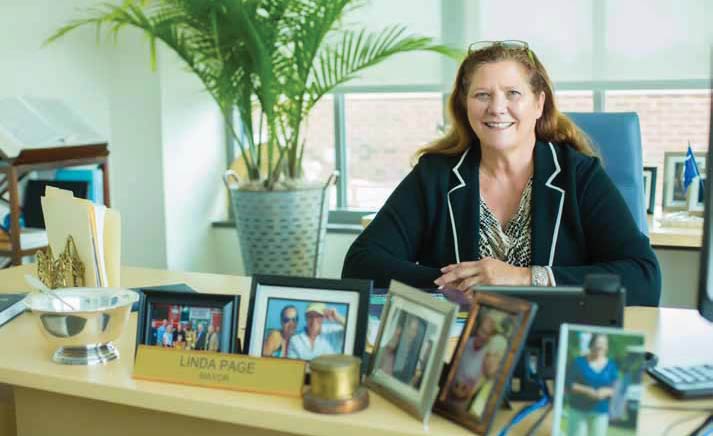
Should Mount Pleasant have a full-time mayor with a full-time salary?
Linda Page: Absolutely. The job is actually full-time right now.
Will Haynie: The laws of the state allow for three types of municipal government. Our town has chosen the council form. Under this form, our mayor’s duties and powers are not like those of, say, Charleston and North Charleston. It’s not like we have the same office those towns do but we just choose to make ours part-time, as if we were a town of 10,000 people. To change our form of government requires that a referendum be put before the voters. At this point, there has not been an effort by voters to change that aspect of our form of government. That being the case, the only real power vested in the mayor of Mount Pleasant is the power to lead, and, if you look at my education and background, you will see that I have demonstrated leadership all my life. I am not running for the position of mayor for what it might be. I am running for the position of mayor for what it is, and, in my view, leadership is never part-time.
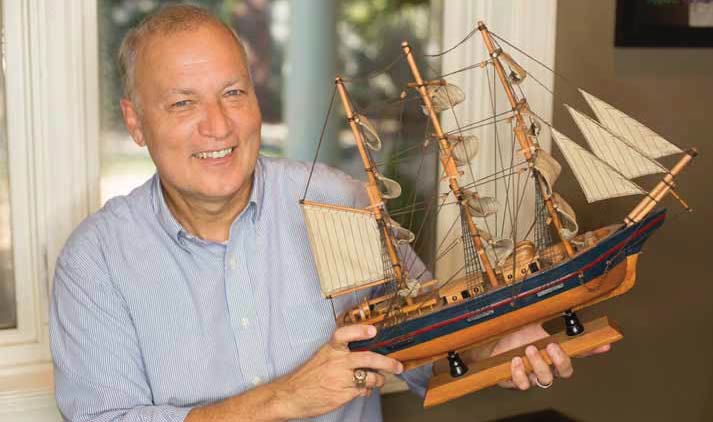
Should Mount Pleasant elect its Council members from single-member districts? Why or why not?
Will Haynie: Recently in our town, some have put forth oversimplified answers to a complex question. As I answered about the mayor’s position, we currently have the state-allowed council form of government, and to answer any such question about districts, you must look at all the possible forms of government in total. I did not support the idea put forth in the recent petition drive for two reasons: first, as one who took an oath to represent all of our citizens at-large, I would never represent to my constituents that I think the answer to any problems, real or perceived, is for voters to give up seven of their eight votes for Town Council. I don’t think you get better representation by permanently guaranteeing that seven of eight Council members will NOT be from your area. Second, the petition drive did not take into account the other possible changes in government that might be possibilities. If we are going to consider changes, we must consider all the options, not just one.
Linda Page: I believe this a question for the citizens of Mount Pleasant to decide. We live in a democracy, and the citizens deserve a right to tell us how they want to be represented.
Should the town be actively recruiting businesses to locate in Mount Pleasant? If so, what type of business should we be targeting?
Linda Page: Yes. Many towns and cities across the country are boarded up and facing desertion. We have a great economic development team in place now, and I support their efforts to attract business that generates income for the town and pay competitive wages that allow their employees to live in Mount Pleasant.
Will Haynie: Yes, the town should be actively involved in economic development. Recruiting is one aspect of economic development, but it absolutely must be accompanied by a leadership effort to upgrade and maintain our infrastructure. One thing we must do is stop re-zoning commercial property to residential, as was done in the recent past. As chairman of the Public Services Committee, which oversees trash collection, streets and drainage, and storm water management, I have experienced firsthand that these functions are not the glamorous headline gainers, but failures in these can bring a town to a halt in one day. I’m also a member of the Transportation Committee, where we deal with our roads, traffic and public transit issues. All of this affects the town’s business climate and desirability either positively or negatively, and that’s why it will be my number one priority as mayor. As to the types of businesses to recruit, we offer a coastal quality of life that should be a draw for corporate headquarters and technology firms. We have very little industrial land. Also, the Wando Terminal will experience massive increases in container volume with the deepening of the harbor. That area of town – Longpoint/Wando Terminal/526 – is our center of trucking and a few craft beer breweries, and I’ve coined the term “Beers & Gears District” that I think we can successfully brand and market.
Does Mount Pleasant have a traffic problem? If so, what can be done to alleviate this problem?
Will Haynie: The answer I hear daily both as a mayoral candidate and as a current councilman is that Mount Pleasant absolutely has a traffic problem! The regional survey I mentioned previously confirms that this is a common feeling all over our fast-growing region. Alleviating traffic problems requires vision and leadership different from what Mount Pleasant is currently getting. First, our upcoming Comprehensive Plan update, mandated by state law, must address that this is the number one problem listed by residents in our area. The vision for future development must take into account that our geography causes us issues that other rapidly growing areas don’t have. We must alleviate this problem by slowing growth and maximize investment in our infrastructure, an example of which is our commitment to widening Park West Boulevard.
Linda Page: Mount Pleasant has several traffic problems, and it will take more than one measure to correct them. The first project we need is Highway 41, especially from Joe Rouse Road to Highway 17. We also need to complete Billy Swails Parkway and the re-alignment of Long Point Road. I think we need to find funding for the widening of Park West Boulevard, as well as the extension of All America Boulevard to meet the roundabout at Park West. Another contributing factor is school traffic, and I believe we can continue to work with the school district to make sure the car riders are not blocking traffic.
Is Mount Pleasant growing too quickly? If so what can be done to slow the town’s growth?
Linda Page: I believe it depends on your perspective. We cannot just throw up our hands and say “no more.” It just does not work that way and to say otherwise is unrealistic. Many people move here because of all of the many great things about this town. However, there are many challenges with growth, including infrastructure that cannot keep up with the growing development. Our current growth rate is around 4 percent, and that is much lower than it has been in the past. What we can do, and what we are currently doing as reflected in our capital improvement plan, is focus on the areas of great need when it comes to infrastructure. Highway 41 must be widened. That is and remains a top priority for me. One of my biggest frustrations these past few years is the lack of focus on our cultural neighborhoods, affordable housing and senior housing reflected in the development plans. Our focus has to change with the changing demographics in this town. It is not all bad, though. Growth has also brought us many new schools, a new high school stadium, a new library and contributed to a substantial increase in our property values.
Will Haynie: The town is absolutely growing too quickly. My opponent likes to cite the small percentage growth rate, but I find that our citizens are not comforted by that statistic while they sit in traffic trying to get home to their families. When you compound the rate into the future, the big number in the end is not something that I believe this town can or wants to sustain. People like Mount Pleasant because of our suburban quality of Lowcountry life, not because we are a high-density urban city. As mayor, changing the arc of our growth pattern will be my priority. To slow the current growth, we can stop granting amendments to the current Comprehensive Plan. A projected development either fits or it doesn’t. The law gives us discretion on approval of the impact assessments of proposed developments. This requires having a set of priorities and sticking to them. Finally, Council will approve the revised and updated Comprehensive Plan after this mayoral election. I believe the people of Mount Pleasant are disappointed with the status quo and ready for a leader with a better vision for the future of our town and more concern with their quality of life than aiding developers.
Is it possible for Mount Pleasant to annex “doughnut holes” throughout the town? If it is possible, should the town annex the areas? Why or why not?
Will Haynie: I have recently done more in-depth study of what state law allows in the way of annexation of unincorporated areas because this is a real issue for us. For instance, the county has granted building heights right in the center of our town that are inconsistent with our municipal ordinances that reflect our vision for our own town. I advocate using every means allowed by state law to “annex inward” those properties that are surrounded by the town in order to have standardized laws and services. We must address sewer and water connection and the fees involved, and I have recently met with representatives of Mount Pleasant Waterworks to examine solutions for this.
Linda Page: It is not possible to annex these areas without the land owner requesting to be annexed. I would love to see these areas annexed so they could enjoy Council representation, sanitation services as well as our excellent police and fire service.
Do you favor term limits for the town’s elected officials?
Linda Page: There are arguments for each side of this issue, but, as a rule, I prefer term limits on all elected offices.
Will Haynie: If we go to single member Council districts, then definitely. Districting severely limits competition, and, at the state and federal level, the reelection rate is something like 95 percent, with many incumbents running unopposed. We saw in the 2015 Council election what the voters can do when they don’t like the way they are being represented – every incumbent lost, regardless of where they lived. With at-large elections in town, the mayor and Council members must do a good job of representing all their constituents, or the voters will impose their own form of term limits, as they did in 2015.
Why should the voters of Mount Pleasant choose you as their next mayor?
Will Haynie: The voters of Mount Pleasant showed in 2015 that I represent the kind of vision and leadership that they want for this town. I have every confidence that this mayoral election will again reflect that sentiment and continue the momentum that took all the powers-thatbe by surprise in that election. With me, they are getting someone who has the education, proven leadership ability and training, and voting record to show I am a leader for Mount Pleasant’s future. Besides, my wife Suzette, a teacher at Jennie Moore, is by FAR the better half of our equation, and she will make a splendid first lady!
Linda Page: During my past eight years of service as a Council member and mayor, I have approached every decision with passion, vision and with the utmost respect for the future of this town and the folks who live in it.


Ms Page recently said she did not regret voting for the “Garage” which ruined Shem Creek (the jewel of the Atlantic coastline). The only way she will realize that destroying Shem Creek, was wrong, is if she is overwhelmingly defeated in this upcoming election…..send a strong message to Ms Page…vote for Will Haynie on Nov 7.
We can’t go back in time, but going forward, we want to maintain our small town atmosphere where live oaks dominate the landscape (not high rise buildings).
‘We can’t just throw our hands up and say ‘No more!’’ If that is the case, when and where will it ever end? And to say you will raise taxes to support the infrastructure!? I, personally, do not want the growth or the tax increase. My vote is for Will Haynie.